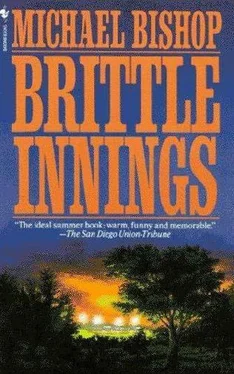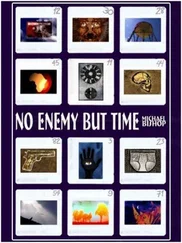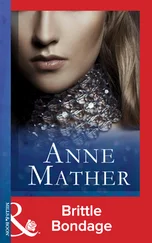“I can’t watch you leave. Be good. Do good.”
A pair of nuns came up, smiling. Only they weren’t nuns, but pillow-breasted Red Cross gals in habits and wimples. They had a hospital cart loaded with goodies, like stewardesses on a Delta flight. They took me for a recruit. They wanted to give me magazines, Tootsie Rolls, Lucky Strikes.
“He don’t want none,” Mama said. “Thank you.”
The Red Cross nuns toddled off, but the soldiers nearby didn’t. When Mama kissed me on the lips, a good slobbery one, they had a snicker riot. Mama left me with the Elshtains. I hoped the colonel would put the fear of God into those dogfaces by calling them down for crooked gig lines and ungentlemanly public comportment, but he didn’t. Soldiers on furlough were privileged characters, prodigal sons in gaberdine. Rightly so, maybe. They’d sweated out fourteen weeks of basic, and a lot of em, like Goochie, would come home as statistics, battle fatalities, instead of people. Colonel Elshtain understood. He’d served in the Great War, the War to End All Wars, and he understood.
Then the colonel and Miss Tulipa left too, and I was alone with all the trained heroes and smiling Red Cross nuns. A redcap directed us-everybody going my way, at least-to our coaches, and porters with hand trucks stowed our duffels in the proper baggage cars. Anyway, this rail ride from Oklahoma to Georgia gave me a new look at humanity. Time I jumped off that train, I’d’ve sworn the defense of the United States was in the hands of sadistic cretins. Jerks that shot up colored training camps in New York State and Louisiana. Yahoos that, a couple of months later, danced the hat dance on zoot-suiters in L.A. As a civvie, I felt like soft-shelled predator bait too. Forget that my draft status had everything to do with being seventeen and nothing to do with being afraid. Did a wish to cap off the last year of my childhood playing Class C baseball make me a coward?
They packed us aboard that train like cattle. On a mirror in the John, somebody’d taped an “Off the Record” cartoon of a GI in his skivvies standing outside a Pullman lavatory with his shaving gear. He fingers his stubbly jaw. “ Great Scott! ” he barks. “ I must’ve shaved the guy next to me! ” Every seat in every coach was taken; every aisle was a logjam.
I got up once, and a sergeant took my place. So I squeezed my way through the clicking coaches till I found the only empty seat in the last five Pullmans. I sat next to a PFC whose head looked like the bowling-ball jaw of the guy in the cartoon. A hulk, with a mug like a skinned Pekingese’s.
“How you know that seat’s not saved?” he asked me.
I wanted to say, “Screw you,” but the snarl in the PFC’s challenge had taken all my sand away. I hadn’t exactly had a quarryful to begin with.
The PFC said, “Nice ears, yokel. Buy em by the yard?”
I went “Duh” like the yokel he’d pegged me and laid a hand on my Adam’s apple to indicate my speech problem.
“Tonsillitis?” he said. “Strep throat? You got some kinda contagious damned communicative disease?”
“I have a st-st-stammer.”
“You do, huh? And astigmatism too if you couldn’t see I was holding this seat for Pumphrey.”
“P-P-Pum-?”
“P-P-Pum yourself,” he mocked. “What’s your name? I’d like to meet your whole yokel cl-cl-clan.”
He was probably from a real metropolis like Coffeyville or Enid, but I was a yokel.
“B-B-Boles,” I said. “D-D-Danny Boles.”
“Where from?”
“ Tenkiller, Oklahoma.” No stammer. Give me a medal. Send me to radio-announcer’s school.
“Well, Boles, ya goddamned Okie, move your skinny ass fore I line it with teeth.” The guy bumped me with his elbow. His nose floated in front of me like an elevator button I didn’t dare mash. “Hey, you’re still in Pumphrey’s seat.”
“B-but where can I g-g-go?”
He laughed. He couldn’t believe me, a kid innocent as bottled water. He put his thumb into the dent behind my chin, to show he meant for me to hop up. I jerked away and stumbled into the aisle-which jostled with foot traffic, landlubbers trying to get their rail legs.
I went enginewards. GIs, recruits, MPs with gunbelts sat jammed into their seats, not one tender female among them. Every car smelled of dried sweat, scorched khaki, cigarette smoke, caked boot polish.
I finally stopped on a platform between two coaches. An accordion-pleated rubber hood was supposed to join the cars (to keep passengers out of the wind and coal dust), but the train people hadn’t hooked it up. I rode the coupling. The wind felt good. So did being alone. The countryside had gentle hills, dogwoods and redbuds still showing color in amongst the evergreens. It got prettier the farther from Cherokee County we chugged. Had Congress designated the Injun Territories for their flatness and lack of trees? Probably.
I’d stood there a couple of minutes when a baby-faced GI banged through from the forward car. He scowled and patted his pockets. He shouted, “Got a smoke, buddy?”
“N-no, I d-d-don’t.”
“Screw you!” he shouted. Did he think I’d mugged a Red Cross lady for her cigarettes, then squirreled away my booty from regular Joes like him? I just stared at him. Maybe a 4-F civilian had snaked his girl, or a recruit had short-sheeted his bunk. Running into such meanness just then felt like having grain alcohol poured into a cut. My stare got harder. I lifted my fists to my ribs. The kid saw them shaking. He spit down at the tracks, easy-like, and returned to the coach he’d come from. That should’ve boosted my morale. I’d shown my steel and a GI had backed off. Problem was, he’d looked like a Campbell ’s Soup kid.
In all the wind and clatter, I began to cry. The platform had me for good, then. I couldn’t go back in with tears on my face. The GIs would’ve ridden me all the way to Georgia.
Our train wasn’t an express. It crawled through every podunk crossing, rattled to a chain-reaction stop in every town with as many as two letters to its name. Passengers lurched back and forth between coaches, but I clung to the coupling’s guard rail and ignored them.
It took an hour and a half to get to Fort Smith and another thirty minutes to pass through Fort Chaffee, the post southeast of it. Recruits off, GIs on. A trackside do-si-do. Finally, we clacked off through Arkansas again.
Later, in the dining car, I sat with three other guys who seemed to be loners too. A swabbie going to Pensacola and two dogfaces. We’d all been strangers, but the other fellas struck up a friendly debate about the credentials (Ol’ Diz would’ve said differentials ) of the Cards without Enos Country Slaughter and the Dodgers without Pistol Pete Reiser, who ran full-tilt into outfield walls and knocked himself out.
My kind of debate. Except my vocal cords had a clamp on them. All I could do, like some kind of chimp, was point, nod, grunt, and grin. The other guys-the friendliest servicemen I’d yet bumped into-must’ve figured me for a runaway from the Oklahoma Institute for Hayseed Dummies. I paid my check and stumbled back to the coupling platform.
And stayed there, where my kidneys began to feel like hip-hugging cocktail shakers. In the fields whipping by, I could make out pole beans, snap beans, alfalfa, cotton. The soil had the richness of devil’s food cake. We drove deeper into the unreconstructed South. The air thickened, smells got odder, the unfamiliar crops sort of scared me.
A soldier came out onto my platform. I bent over my rail, but he didn’t go away. I could feel his stare seeping through the back of my shirt and up my arms-like kerosene through a pile of rags. Finally, I faced him.
An older guy. Stripes on his sleeves, ribbons on his breast pocket, heavy lips. His coloring reminded me of a slice of Spam. A sergeant. A vet of some combat theater, probably. I relaxed. Battle-tempered noncoms showed themselves hard-noses in training camps, but teddy bears with kids and women and well-meaning civilians.
Читать дальше












